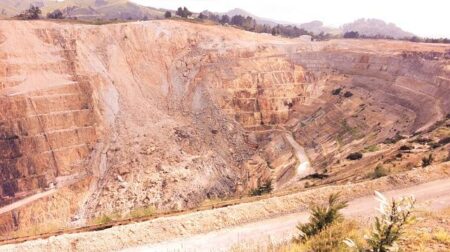Argentina’s former president Cristina Fernández de Kirchner has been sentenced to prison in a landmark corruption case, marking a significant development in the country’s ongoing battle against political corruption. The Washington Post reports that the ruling, delivered by a federal judge, holds Kirchner accountable for charges related to fraudulent public works contracts during her time in office. The decision has sent shockwaves through Argentina’s political landscape, prompting varied reactions from supporters and critics alike. This article examines the details of the conviction, its legal implications, and the potential impact on Argentina’s future political climate.
Cristina Kirchner Sentenced to Prison in High-Profile Corruption Case
In a landmark ruling that has sent shockwaves through Argentina’s political landscape, former president Cristina Kirchner was handed a prison sentence after being found guilty in a major corruption case. The verdict marks a historic moment, as Kirchner becomes one of the highest-profile political figures in Latin America to face such consequences. The court found her responsible for orchestrating a scheme involving public contracts that funneled millions of dollars into her inner circle over several years.
The sentencing has ignited a wave of reactions across the country, ranging from support for the judiciary’s efforts to end impunity to claims that the trial was politically motivated. Key elements highlighted in the case included:
- Duration: Corrupt practices traced back to her administration from 2007 to 2015.
- Financial Impact: An estimated $30 million embezzled through inflated public works contracts.
- Legal Outcome: A 6-year prison sentence with the possibility of appeals pending.
| Aspect | Details |
|---|---|
| Charges | Money laundering, fraud, and illicit association |
| Trial Duration | Over 2 years |
| Sentencing | 6 years imprisonment, 12 years ban from public office |
Legal and Political Ramifications for Argentina’s Leadership and Governance
Cristina Kirchner’s sentencing marks a watershed moment in Argentina’s political landscape, casting a long shadow over the nation’s leadership dynamics. As the first former president to face imprisonment, her conviction challenges the traditionally entrenched power structures and raises questions about judicial independence and political accountability. The ruling has already sparked intense debate within both governmental circles and the public, fueling divisions between her supporters, who decry the sentence as politically motivated, and opponents who view it as a step towards transparency and anti-corruption reforms.
The ramifications extend beyond Kirchner herself, affecting key aspects of governance and international relations. Analysts highlight several critical outcomes, including:
- Political Polarization: Heightened tensions between factions could destabilize coalition-building efforts in upcoming elections.
- Judicial Precedent: Sets a benchmark for future corruption prosecutions involving high-ranking officials.
- Diplomatic Impact: Alters Argentina’s image on the global stage, potentially influencing foreign investment and bilateral ties.
| Impact Area | Short-Term Effect | Long-Term Outlook |
|---|---|---|
| Governance | Uncertainty in policy continuity | Possible reforms enhancing transparency |
| Public Trust | Increase in civic unrest | Gradual restoration with stricter oversight |
| Political Parties | Factional infighting intensifies | Realignment and emergence of new leadership |
Experts Call for Strengthened Anti-Corruption Measures to Restore Public Trust
Legal experts and political analysts are emphasizing the urgent need for more robust anti-corruption frameworks in the wake of Argentina’s latest high-profile conviction. The sentencing of former President Cristina Kirchner has reignited debates on the systemic challenges that have allowed graft and misuse of power to persist within the government for decades. Authorities and civil society are now urging lawmakers to implement stronger checks and balances that can effectively deter similar abuses and ensure accountability at all levels.
Reform advocates outline several critical areas for improvement:
- Enhanced transparency in public procurement processes
- Independent judicial oversight bodies with sufficient authority
- Whistleblower protection laws to encourage reporting of corrupt activities
- Modernized digital tracking of government transactions to reduce opportunities for fraud
| Measure | Expected Outcome | Status |
|---|---|---|
| Transparency Reforms | Reduced misuse of public funds | Pending legislative approval |
| Judicial Independence | Faster and impartial prosecutions | Under discussion |
| Whistleblower Protections | Increased reporting of corruption | Drafting phase |
To Wrap It Up
The sentencing of Argentina’s former president Cristina Kirchner marks a significant chapter in the country’s ongoing struggle with corruption and political accountability. As one of the most influential figures in recent Argentine history, her conviction is expected to have far-reaching implications for the nation’s political landscape. Observers both within Argentina and internationally will be closely monitoring how this landmark decision shapes the future of governance and justice in the region.




